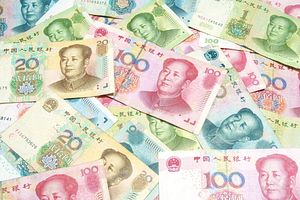China released its growth data for the first quarter of 2014 this week. According to the National Bureau of Statistics, China achieved 7.4 percent economic growth during the first three months of this year — China’s lowest quarterly growth since 2012, but still on pace to meet the “soft target” of 7.5 percent growth for the year.
However, most Western media outlets did not take this as encouraging news. The New York Times opened its story by saying the growth rate “confirm[ed] the concerns of investors and economists.” The Times article also argued that, because China doesn’t release annualized economic growth figures (comparing each quarter with the previous quarter), most of the growth represented by the 7.4 year-on-year figure “actually took place during the second, third and fourth quarters of last year.” The Times cited “private economists” as estimating that China’s annualized growth rate was much lower, somewhere around 5.5 percent.
In a similar vein, Financial Times speculated that the slow growth rate would put “pressure on Beijing … to prop up faltering growth.” So far in 2014, FT wrote, “slumping trade, weak manufacturing, slowing real estate sales, lower investment and lackluster consumption have convinced most economists to downgrade their growth predictions” for China.
Chinese media was apparently frustrated with articles suggesting China’s economy was in danger. Xinhua published several English language articles arguing that China’s growth is and will remain steady, despite the ongoing economic rebalancing. One such article opened directly (and bluntly) with the admonishment that “fussing over China’s economic slowdown is nothing but a waste of time.” The article dismissed “doomsayers” who “peddle gloom over China’s economic future,” pointing out that China has actually performed a tad better than the prevailing estimates of 7.2 or 7.3 percent growth. The article concluded, “It is natural for an economy to slow down during a period of structural adjustment and optimization. The result of a more balanced growth makes the slowdown worthwhile.”
Another Xinhua article, titled “Chinese economy deserves far-sighted optimism” argued that China’s recently released growth rate should actually dispel “fears about a possible ‘hard landing’” for China. This article, however, was less concerned with dismissing speculation about China’s economic slowdown, and more interested in explaining why such a slowdown might actually be a good sign. “Despite downward pressure in the short term, China’s economy deserves far-sighted optimism, as opportunities and potential will arise from its restructuring,” the article argued. In other words, yes, China’s economy is slowing, but it’s a controlled, calculated fall, rather than a crash.
Perhaps the most interesting Xinhua article (reposted in English by China Daily) attempted to shift the debate entirely away from a focus on GDP growth. The article deemed the 7.4 percent growth rate perfectly acceptable for China’s leaders. “7.4-percent quarterly GDP growth is not a level that can drag China into the abyss of collapse,” the article said, and rejected the idea of a stimulus package from the government. Instead, Xinhua urged people to pay less attention to GDP growth and more to “other development goals, like residential income, employment and air quality.” As Xinhua pointed out, residential income is up for China (particularly for rural residents), and employment is holding steady, thanks in part to a drop in the labor force as China’s population ages.
The article concluded, “To seek a new path that is less dependent on investment and more reliant on innovation and consumption, slower growth is a cost China must pay for healthier sustained growth.” China’s leaders have made similar proclamations as they attempt to shift China’s economy onto a path of sustainable (but necessarily slower) growth. Still, the various articles in Xinhua show that the message has not entirely sunk in — Chinese media is defensive about Western speculation of an economic slowdown, even though officially the government has acknowledged that this is expected, and even necessary.
The transition away from an overreliance on GDP statistics is especially difficult for China, which has long been accustomed to trumpeting its economic success based on those impressive numbers. To be truly successful, China’s economic rebalancing will have to involve not only a shift in economic growth drivers, but a more fundamental change in the way China thinks about and evaluates economic growth.
































